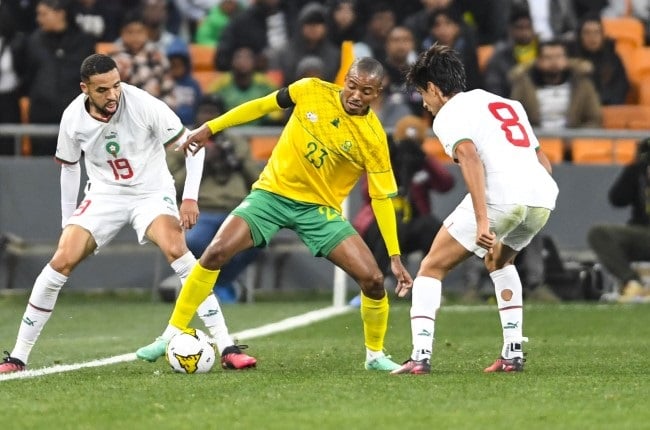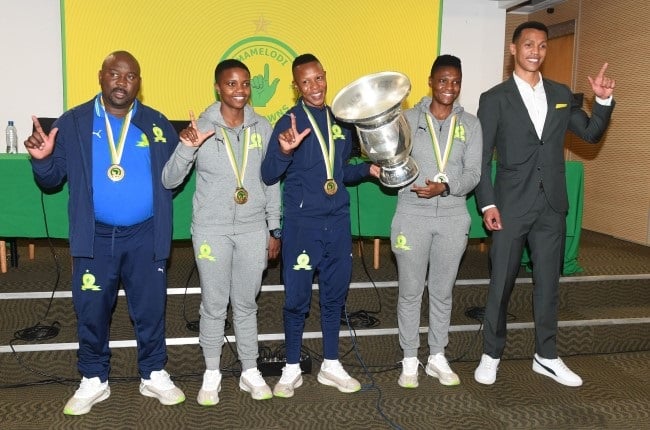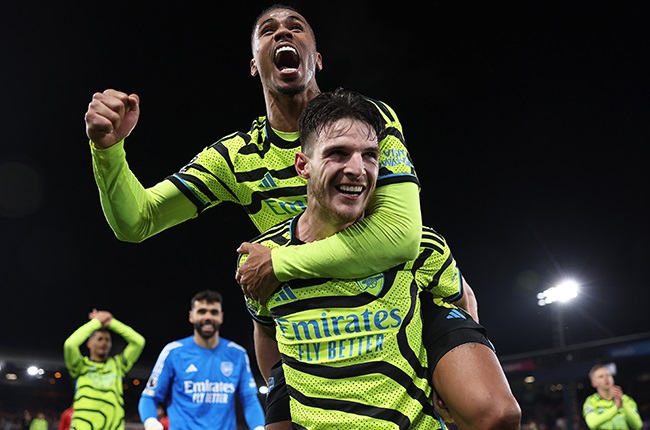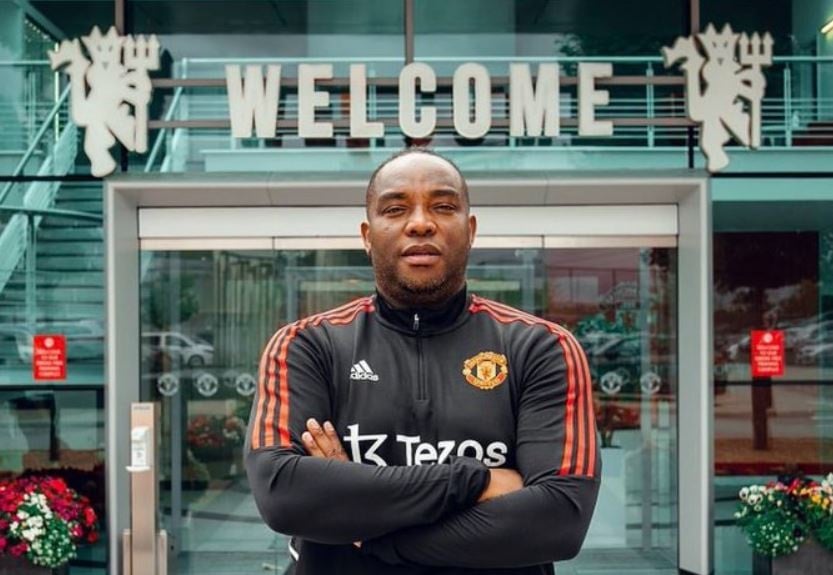
- Bafana Bafana take on Morocco in a battle for the last remaining spot in the quarter-finals of the Africa Cup of Nations on Tuesday night.
- It is a match that will be eagerly followed by the respective leaders of the two countries in a rivalry that extends to their foreign policy off the field.
- On the field, South African teams and their Moroccan counterparts have historically denied the other African supremacy.
- For more Afcon news, go to News24’s Africa Cup of Nations Zone.
If Pretoria and Rabat were keeping scores – and they probably are, such is the nature of their almost 20-year tit-for-tat squabble – then Morocco would have a commanding lead over South Africa, whose saving grace is their unwavering moral stance.
It’s a stance that would have received renewed energy following South Africa’s victory at the International Court of Justice (ICJ).
The court found that Israel’s bombardment of Palestinians in Gaza appeared to be genocidal, essentially ordering the state to drastically scale down its military intervention and ensure humanitarian support is provided to those in the Gaza Strip.
The court’s decision was a big win for South Africa even though the ICJ didn’t grant the main order that Pretoria was calling for – a ceasefire from Israel.
It was a victory that dusted the country’s moral compass which had been tainted by their non-alignment stance in the Russia-Ukraine conflict, which gave the impression that South Africa supported Moscow, an off-shoot of the Soviet Union that supported the resistance movement’s fight, including the armed struggle, against apartheid.
South Africa, much to the protest of Morocco, have drawn parallels between Israel’s occupation of Palestinian territories and Morocco’s control of Western Sahara. The Sahrawi Arab Democratic Republic controls 20% of the territory on the northwestern coast of Africa with the other 80% controlled by Morocco.
Pretoria formally recognised the Republic on 15 September, 2004, supporting the self-determination of the Sahrawi people. This position put the country at loggerheads with Morocco, who accused Pretoria of meddling and being divisive.
“Geographically, we are very far from each other, we are the two extremes in Africa, so we don’t have any bilateral issue normally,” Nasser Bourita, Morocco’s Minister of Foreign Affairs, African Cooperation and Moroccan Expatriates told Sunday Times.
“We don’t have common borders, we don’t have territorial issues. The problem is linked to one thing: SA decided to have a position on an issue which is hundreds of kilometres far from it, a position which is in contradiction with the UN (United Nations) and now in contradiction with the AU (African Union) positions.”
Since then, both countries have been trying to upstage each other.
In 2019, Pretoria hosted a Southern African Development Community solidarity conference on Western Sahara. Rabat retaliated by hosting a counter conference in Marrakesh which was better attended and with more high-profile dignitaries.
This spat eventually reached the sporting arena.
Moroccan authorities denied Caster Semenya a visa to compete in the Diamond League in 2019 after she was cleared to take part in Rabat during her battle with the World Athletics on their eligibility regulations.
The two-time Olympian was eventually given a visa by Rabat, but only when it was almost impossible for her to fly into the country.
LIVE | Afcon: Senegal’s Diatta labels African football body ‘corrupt’ after exit
This was in retaliation to the South African government’s stance that the South African Football Association (SAFA) can’t vote for Morocco to host the 2026 FIFA World Cup.
SAFA were caught between a rock and a hard place, with the SA government telling them one thing and the Confederation of African Football (CAF) urging the continent’s federations to vote for Morocco.
SAFA president Danny Jordaan listened to government and voted for the joint bid of the United States, Canada and Mexico.
Morocco wasn’t pleased. They blocked Jordaan’s ascendancy to a vacant FIFA council seat which he was widely tipped to take, with a late candidate backed by Morocco coming in to oppose the SAFA president.
“We were punished,” Jordaan told this reporter at the 2019 Africa Cup of Nations (Afcon).
“That’s why I am not on the FIFA council. Your belief (however) is non-negotiable. I come from a liberation background. I come from the struggle of the 70s where there were people like Steve Biko, Raymond Mhlaba and Govan Mbeki.
“Those people never asked for money or kickbacks. We must take the pain and not complain. We understand any nation’s quest for freedom, liberation and sovereign independence. We understand that. South Africa has stated its position clearly.”
Morocco eventually had the last laugh, albeit being handed crumbs when it was announced as one of the three hosts of the 2030 World Cup along with Spain and Portugal, with some matches also set to be played in Argentina, Uruguay and Paraguay to celebrate the tournament’s centenary.
Rabat has also celebrated other wins against Pretoria, including their reinstatement in the African Union against South Africa’s wishes and recently being voted to lead the United Nations’ Rights Council – something that South Africa opposed.
So, when Bafana Bafana take on the Atlas Lions on Tuesday night for the last remaining quarter-final spot, it is a contest that will be eagerly followed by Pretoria and Rabat as it offers another opportunity to have one over the other.
The game, however, is shaped by a strong footballing rivalry that has seen South African women’s national teams and clubs fight for continental honours.
South Africa’s women have fared better than the men, with Banyana Banyana claiming their maiden African title at the expense of Morocco’s national team in their own backyard.
Mamelodi Sundowns Ladies won two of the three CAF Women’s Champions League titles at the expense of Moroccan clubs. The one they lost – yes, you guessed it – was against a Moroccan team.
The Brazilians’ men’s side have been tormented by Wydad Casablanca in the Champions League, dethroning them in their title defence in 2017 and ensuring they don’t add a second star in 2019 and 2022.
READ| Bafana Bafana v Morocco: Two of Afcon’s biggest underachievers go face-to-face
Sundowns eventually exorcised that ghost when they beat Wydad to win last year’s Africa Football League. Hugo Broos’ squad is dominated by Sundowns’ players who were key in that success. That triumph pushed Themba Zwane to want more.
“I want to win the Champions League again and obviously win something with the national team. There’s Afcon coming. If I can get that one, I would be happy,” said Zwane.
Sundowns are still in the running for the Champions League and need to get past Morocco to move closer to realising his Afcon dream.
If Bafana can achieve that, having overcome Morocco, it’s a victory that Pretoria would celebrate loudly as there have been so few over Rabat.
And, who knows? President Cyril Ramaphosa could even give the country another holiday like he did when the Springboks won the World Cup.
Kick-off on Tuesday is at 22:00.






Recent Comments